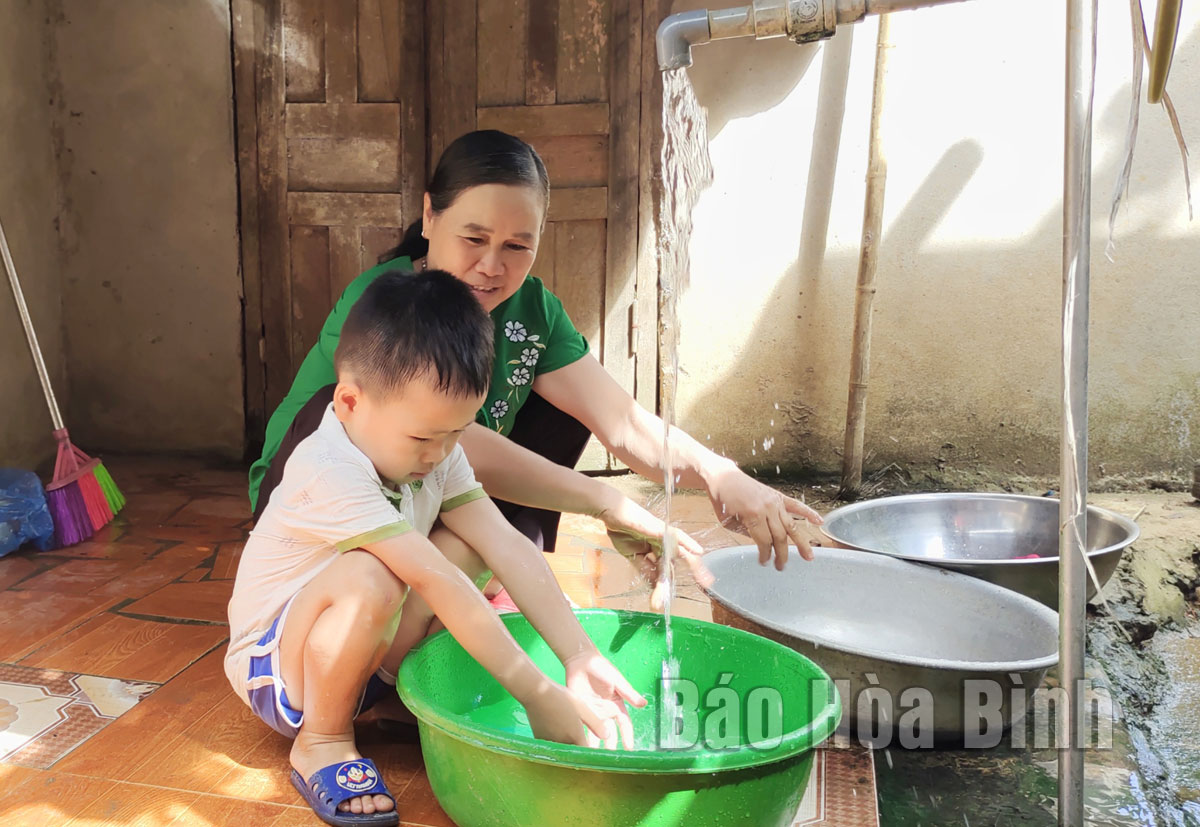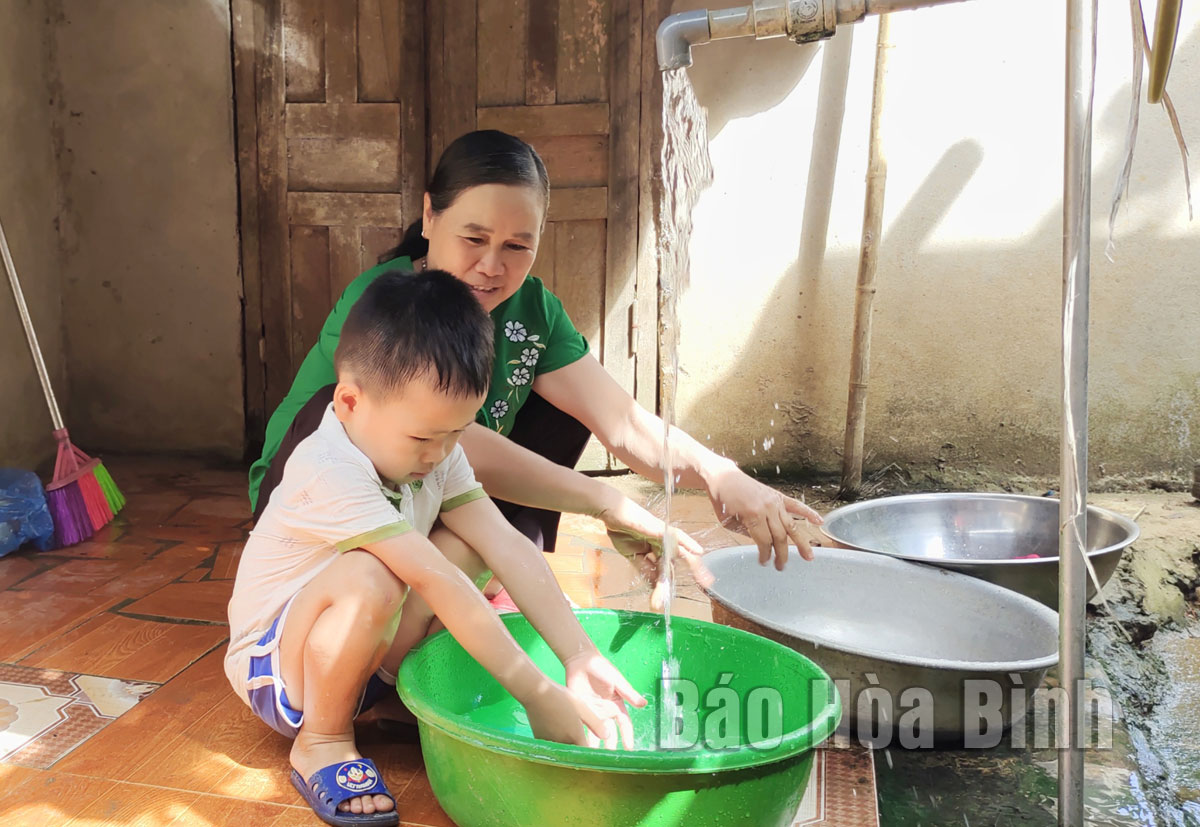
(HBO) - Hoa Binh is one of the 21 provinces benefiting from the programme on expanding the scale of rural sanitation and clean water based on results of loans from the World Bank (WB) in the 2016-2020 period. The programme has brought about practical results, yet the implementation remains slow.

Programme on expanding the scale of rural sanitation
and clean water based on results helps many Hoa Binh households improve their
quality of life. Photo taken in Hop Phong commune (Cao Phong).
The programme, approved in 2016, has a total capital of
271.96 billion VND, with three components, namely rural water supply and rural
sanitation, capacity building and communication, and programme supervision and
evaluation. It set goals of 13,800 households using hygienic water, at least 60
communes achieving sanitation standards, sanitation works of 85 health stations
and 96 schools and 8,850 household toilets built or renovated.
To date, toilets of 79 out of 85 medical stations and all 96
schools have been built or upgraded. It can be said that the programme has made a practical contribution
to improving the quality of life and awareness of local people. However, at
present, it is facing several difficulties and problems that need to be solved.
Dinh Cong Su, Vice Chairman of the provincial People's
Committee and head of the executive board of the programme, said that members
of the executive board have made great efforts in implementing their tasks to
complete the programme's objectives. However, there is a lack of activeness in
the consultation and coordination between departments and sectors, leading to
the slow implementation of some programme contents.
In order to speed up the implementation, the members need to
further improve the sense of responsibility, actively give advice and
recommendations on the implementation of the assigned tasks, review the plan
and coordinate with relevant units to urgently make detailed plans to implement
the 2022 tasks, and work out specific solutions to complete the set goals and
disburse ODA capital at the maximum in 2022./.
The emulation movement "Hoa Binh joining hands to build new-style rural areas” has been widely spreading, becoming a driving force that motivates the localities to renew rural landscapes and improve the material and spiritual lives of the residents. In this movement, the people play a central role-both as the main implementers and direct beneficiaries of its outcomes.
In response to the global digital revolution, Hoa Binh Newspaper is transforming itself into a modern and multi-platform media hub, blending cutting-edge technology with a restructured newsroom and a new generation of tech-savvy journalists.
Hoa Binh province’s Association of the Elderly recently held a conference to review the project on expanding the inter-generation self-help club model until 2025.
In a move to implement Resolution No. 57-NQ/TW, issued on December 22, 2024 by the Politburo, which targets breakthroughs in science-technology development, innovation, and digital transformation, the Hoa Binh provincial Department of Health has issued a plan to roll out the "Digital Literacy for All” campaign within the local health sector.
An Nghia Commune (Lạc Sơn District) is one of the communes that achieved the tha standard of the national new rural area in 2018. Entering a new development phase, the commune is now trying to meet the criteria for the advanced new rural development. With the strong political will and the public consensus, the commune is gradually overcoming the challenges to reach this goal, aiming for the sustainable development.



